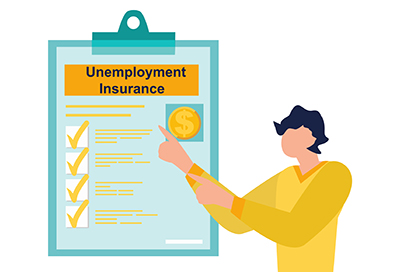Although businesses and organizations continue to reopen, some employees remain steadfast in their desire not to return to work.

Some may refuse because the working conditions are unsafe, or they generally fear catching COVID-19 during the ongoing pandemic. Others may fear their jobs aren’t “suitable employment.” Finally, some may be temporarily receiving more benefits from the Coronavirus Aid, Relief, and Economic Security (CARES) Act.
Each refusal may affect the individual’s continuing claim to unemployment compensation benefits.
Unsafe Work Conditions
Employees may refuse to return to work because they reasonably believe unsafe conditions exist at their place of employment. To continue receiving benefits, they must show the conditions present an imminent danger of death or serious physical harm that would lead an average worker to quit.
Depending on the factual circumstances, COVID-19 may be an imminent danger of death or serious physical harm. In such cases, you should request information about the employee’s particular concerns and seek to allay them by providing clear information about the proactive measures you’re taking to address the safety issue(s).
Generalized Fears of Returning
If employees have no medical conditions or reasons to believe the workplace is unsafe, a generalized fear of returning isn’t enough to remain eligible for unemployment benefits. In such cases, you should again:
- Communicate with them to hear their concerns;
- Offer reassurances you’re following all available public health guidance;
- Outline the specific measures you’ve taken; and
- Discuss the implications if they don’t return to work.
If the employees still refuse, they likely won’t qualify for continuing unemployment benefits because you have offered suitable employment.
Suitable Employment
In some cases, employers may offer a different position when calling an employee back to work. Perhaps the company has restructured the organization or eliminated certain jobs because of the economy.
Determining whether the employee is eligible for jobless benefits requires analyzing whether the position offered is “suitable employment.” In other words, the job should be reasonably related to the individual’s qualifications. Other factors include:
- Degree of risk to the employee’s health and safety;
- His physical fitness for the position;
- Previous training, experience, and length of unemployment;
- His prospects for securing employment in his occupation; and
- Whether the job requires a significantly longer commute.
In addition, you must consider the size of the wage offer because the position may not be suitable if the amount is lower. If the job isn’t suitable, the individual may remain eligible for unemployment.
Receiving Enhanced Unemployment Benefits
If an employee refuses to return to work because the CARES Act is providing heightened unemployment benefits, he also isn’t eligible to receive unemployment benefits once you offer suitable reemployment. We suggest sending a written recall notice and speaking with him about the implications of refusing to return to work.
How to Report Unemployment Eligibility Information
Using Minnesota as an example when addressing the above scenarios, you must first report any newly hired, rehired, and/or returning employees to the Minnesota Department of Employment and Economic Development via its new hire reporting center online portal within 20 days. Next, you can “raise an issue” with the state unemployment insurance (UI) office to dispute an applicant’s eligibility for jobless benefits.
To raise an issue, you must log into your employer account online, click “Determinations and Issue Summary,” select the corresponding employee you’re raising an issue about, and then follow the prompts. You also can apply via fax or e-mail by sending the first page of the employee’s unemployment determination letter with annotations indicating you’re raising an issue and explaining the reasoning behind it.
After raising the issue with UI, be sure to gather all relevant information and documentation, including the employee’s personnel file, timecards, any evidence of the individual’s refusal to return, the written recall notice, and anything similar. The unemployment office will contact you for the information to make an eligibility determination.
Final Thought
The pandemic has greatly changed the landscape for unemployment compensation benefits. Be sure you understand your rights and obligations when an employee refuses to return to work because of COVID-19 concerns.
Colin H. Hargreaves is an attorney with Felhaber Larson, P.A., in Minneapolis, Minnesota. You can reach him at chargreaves@felhaber.com.
